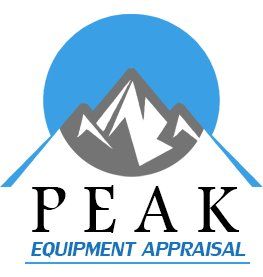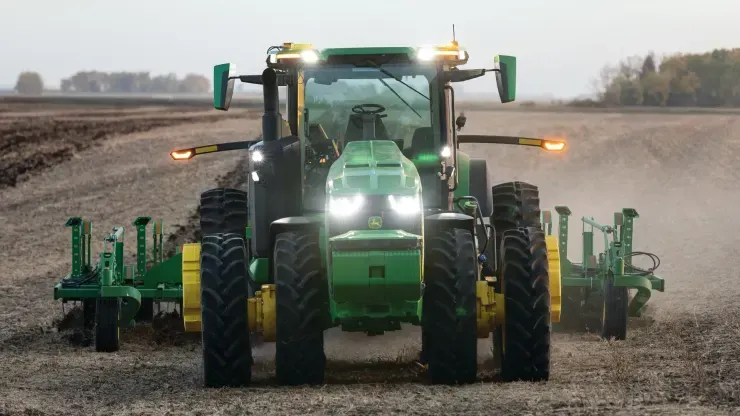Food Processing Equipment Appraisals in Today’s F&B Landscape
Food processing equipment appraisals go beyond a simple price tag. This article from NEBB Institute explores the multifaceted world of appraising machinery in today’s F&B landscape.
Food processing equipment appraisals are crucial for businesses in the food processing industry, providing accurate evaluations of equipment value to make informed decisions about buying, selling, upgrading, or investing in equipment. Appraisals help in avoiding overpaying or underselling equipment and are essential for obtaining loans and insurance coverage.
Competent appraisers should be able to evaluate various items in food processing equipment, including processing, preparation, and packaging machines, conveyor systems, ovens, thermometers, measurement devices, and more. These appraisal reports should outline the equipment’s worth based on its current condition and market demand, helping businesses understand the value of their machinery and plan for the future.
An Overview
Global Food Processing Equipment Market:
- The global food processing equipment market size was estimated at USD 50.80 Billion in 2022 and is expected to reach USD 52 billion.
- The market is projected to grow at a compound annual growth rate of 4.0% from 2023 to 2030, reaching USD 69.30 Billion by 2030.
- Asia Pacific dominated the market with a revenue share of 34.9% in 2021.
US Food Processing Equipment Market:
These sources collectively offer a comprehensive view of the food processing equipment market, including market size, key players, trends, and factors influencing market growth.
- The US food processing equipment distributors industry employs over 10,000 people and generates an estimated $5 billion in revenue annually as of March 2021.
- Future Market Insights forecasts that the food processing equipment market is expected to reach $69.8 billion by 2032, driven by factors like the rising food & beverage industry, safety regulations, and demand for packaged foods.
- A report on LinkedIn discusses the global food processing equipment market size, focusing on market analysis, classification by type and application, and key players in the industry.
Key Players:
Grand View Research provides insights into the global food processing equipment market, highlighting market size, key players like Krones AG and trends in different applications such as bakery, meat, dairy, and beverages.
- Major companies in the food processing equipment market include Krones AG, KHS Group, OPTIMA Packaging Group GmbH, ProMach, and others.
Factors Driving the Market:
Key factors driving the food processing equipment market include the rising food & beverage industry, stringent regulations on food processing & safety, and increasing demand for packaged and processed foods.
Benefits of a Food Processing Equipment Appraisal
Understanding the accurate value of your equipment, whether it’s industrial mixers, high-powered ovens, or complex packaging machines, is crucial for various situations. Food processing equipment appraisals provide F&B businesses, lenders, and individuals with a clear picture of equipment worth, ensuring fair transactions, securing financing, and making strategic investment choices.
- Informed Decision-Making: A food processing equipment appraisal empowers F&B businesses to make well-informed decisions regarding equipment purchases, upgrades, and sales. Knowing the true value of your assets allows for better budgeting, negotiation leverage, and strategic planning for future equipment needs.
- Increased Confidence for Lenders: When financing equipment purchases, lenders rely on accurate valuations to minimize risk. A food processing equipment appraisal provides a credible assessment, fostering trust and facilitating smoother loan approvals.
- Accurate Valuations for Fair Transactions: Whether buying or selling equipment, a food processing equipment appraisal ensures fair pricing. This eliminates guesswork and protects both parties involved in the transaction.
When to Get a Food Processing Equipment Appraisal
There are several situations where a food processing equipment appraisal becomes essential:
- Financing Equipment Purchases: Obtaining a loan for new equipment often requires a professional appraisal to determine the equipment’s value as collateral.
- Selling a Business or Equipment: Accurately valuing your equipment during a business or equipment sale is crucial. A food processing equipment appraisal provides a reliable basis for negotiations and ensures you receive fair market value.
- Insurance Purposes: Equipment insurance requires an accurate valuation to determine the appropriate coverage amount. A food processing equipment appraisal ensures you have adequate insurance protection.
- Dispute Resolution: In case of disagreements regarding equipment value, a food processing equipment appraisal offers an objective and impartial assessment to resolve disputes fairly.
- Tax Purposes: Depending on tax regulations, equipment depreciation may be a factor. A food processing equipment appraisal establishes a baseline value for calculating depreciation accurately.
Picture This: How Appraisals May Benefit F&B Businesses
Here are a few examples of how food processing equipment appraisals have benefitted F&B businesses:
Case Study 1: Securing a Loan for ExpansionA local bakery planned to expand its operations and required financing for new industrial ovens. However, the bank hesitated due to the lack of a clear valuation on their existing equipment. By obtaining a food processing equipment appraisal, the bakery owner was able to demonstrate the value of their existing assets, which ultimately secured the loan needed for expansion.
Case Study 2: Fair Pricing During Equipment SaleA family-owned cheese manufacturing company decided to sell some of their older processing equipment. To ensure fair pricing, they hired a qualified appraiser. The food processing equipment appraisal provided an objective assessment, leading to a successful sale at a mutually agreeable price.
Choosing the Right Food Processing Equipment Appraiser
Selecting a qualified appraiser is crucial for a reliable and accurate food processing equipment appraisal. Look for appraisers with:
- USPAP-Compliant Methodology: The appraiser should adhere to the Uniform Standards of Professional Appraisal Practice (USPAP) for ethical and credible valuations.
- Clear Communication and Responsiveness: Effective communication throughout the appraisal process is crucial. Choose an appraiser who is readily available to answer your questions.
- Professional Certifications and Reputation: Look for appraisers with relevant certifications and a positive reputation within the industry.
- Experience in F&B Equipment Valuation: Experience in appraising similar equipment within the F&B industry ensures a deep understanding of factors impacting value.
For example, experienced M&E appraisers understand how average depreciation rates may vary for different equipment categories:
- Mixers: Industrial mixers typically depreciate at a rate of 10-15% annually
- Ovens: High-powered ovens can see depreciation rates ranging from 12-18% per year
- Freezers: Commercial freezers generally depreciate at a rate of 8-12% annually
These figures can vary depending on factors such as brand, condition, usage, and maintenance history of the equipment. It is essential to consult a qualified food processing equipment appraiser to determine the specific depreciation rate for your equipment accurately.
Interested in learning more about food processing equipment appraisal? Sign up for our free webinar on April 9, 2024, “Unlocking Restaurant Value: Essential Strategies for Machinery & Equipment and Business Appraisers.”



